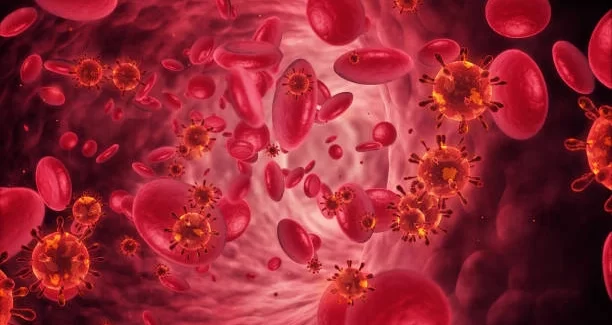What Are the Common Signs of children’s Health & Mental Illness? Find Out!!

Posted Date: February 25th, 2023
When it comes to our children’s health we all have a special responsibility to ensure they are both physically and mentally well. With so many signs and symptoms of physical illness and mental health conditions such as ADHD, autism, depression and anxiety it can be hard to know what is normal and what isn’t. This blog post provides an informative overview for parents of the common signs of childhood physical illness and behavioral or emotional issues that may indicate a mental illness in your child – so that you can act swiftly if any are present. So what are you waiting for? Read on to find out more.
What does mean of child’s mental illness?
Mental illness in children is the term used to describe a wide range of mental, emotional and behavioral disorders. It can affect how a child thinks, feel and act. Mental illness is a medical condition that can be treated. While many mental health conditions are treatable some may require long-term treatment or management.
Common Signs of Children’s Mental Illness
Children’s mental illnesses can be difficult to detect, as they don’t present with the same clear physical signs and symptoms as many physical illnesses do. Some common signs include:
(i) Changes in appetite or eating habits: If your child has a sudden decrease or increase in their appetite or is skipping meals with no rational explanation this may be a sign of an underlying mental health issue.
(ii) Isolation: If your child has become isolated and withdrawn from family and friends this could indicate depression or anxiety disorder. Moreover if they have lost interest in activities or hobbies they once enjoyed this could also be a sign of mental illness.
(iii) Mood swings: If your child exhibits sudden and unexplained mood swings this could indicate an underlying mental health condition. Children with mental health issues may have a more severe emotional reaction to frustration or disappointment than what is considered normal.
(iv) Sleep disturbances: If your child isn’t able to sleep properly this could be an indication of underlying mental health issues such as depression, ADHD or anxiety. It’s important to note that all children experience difficulty sleeping from time to time. However if the issue persists or is impacting your child’s day-to-day life it may be a sign of an underlying mental health issue.
(v) Changes in school performance: If your child’s academic grades or overall school performance has suddenly and drastically declined this could be an indication of a mental illness. If your child is struggling with mental health issues it could be more difficult for them to concentrate and pay attention in class.
(vi) Substance abuse: If your child is experimenting with drugs or alcohol this may indicate an underlying mental health issue. Moreover if your child is engaging in reckless behavior or has become prone to outbursts of anger these could also be signs of an underlying mental health condition.
(vii) Self-injury: If your child is exhibiting signs of self-harm or has a habit of cutting themselves this could indicate mental health issues such as depression, anxiety or PTSD. Generally, self-injury is a coping mechanism for dealing with intense emotions and it’s important to seek help immediately if you suspect this may be the case.
If any of these signs or symptoms are present in your child it’s essential to take them seriously and seek help from a mental health professional. While some of these signs can be a normal part of childhood development if they persist or have a negative impact on your child’s life it could indicate an underlying mental health disorder that requires treatment. Understanding and recognizing the signs of mental illness in children is essential for their well-being and future success. You can help your child lead a happy and healthy life with proper care, guidance and support.
Common Signs of Children’s Physical Illness
Children’s physical illnesses are often the first sign of something wrong. As parents it’s important to watch for any signs and symptoms of illness, especially in young children who can’t always verbalize their feelings or complaints. Some common signs include:
(i) Fever: A fever is usually a sign of infection and can indicate the presence of an illness. It’s important to take your child’s temperature regularly and seek medical help if it’s too high or lasts for more than a few days.
(ii) Vomiting: This might be caused by something as simple as a stomach bug or food poisoning but it can also be a sign of something more serious. Moreover, persistent vomiting can lead to dehydration, so monitoring your child’s fluid intake is important as seeking medical help if necessary.
(iii) Pain: Pain can signify many illnesses, ranging from the common cold to more serious conditions like appendicitis. It’s important to note where the pain is, how long it lasts and any other accompanying symptoms.
(iv) Rash: A rash can indicate an allergic reaction or serious illnesses like measles. It’s important to take pictures to track changes and if necessary, seek medical help. Moreover it’s important to make sure your child is up-to-date on all their immunizations.
(v) Excessive tiredness: If your child is suddenly very tired or having trouble sleeping it could be a sign of an infection or underlying medical condition. It’s important to pay attention to any changes in energy levels.
(vi) Unexplained weight changes: Unexpected weight gain or loss can indicate underlying health issues and should be looked at by a doctor. Moreover it’s important to note any changes in appetite and eating habits.
What are common childhood disorders?
As we have discussed, many signs can indicate a mental health disorder in children. Some common childhood disorders include:
(i) Attention Deficit Hyperactivity Disorder (ADHD): This is a neurological condition characterized by difficulty focusing and paying attention, impulsivity and hyperactivity. Moreover it can be accompanied by behavioral challenges.
(ii) Anxiety Disorders: These are characterized by excessive worrying, fear and avoidance of certain situations or objects. They may also include physical symptoms such as dizziness and chest pain.
(iii) Oppositional Defiant Disorder (ODD): This is a form of disruptive behavior characterized by arguing, disobedience and defiance.
(iv) Mood Disorders: These include depression and bipolar disorder, which involve changes in mood or behavior that last at least two weeks or more. They may also include feelings of sadness, hopelessness, irritability, guilt and low self-esteem.
(v) Autism Spectrum Disorder (ASD): This is a neurological condition characterized by difficulty with social interaction, communication and behavior. ASD can range from mild to severe and present differently in each person.
(vi) Learning Disorders: These include dyslexia, dyscalculia and specific language impairment. They are characterized by difficulty in areas such as reading, writing, math and speaking.
(vii) Eating Disorders: These involve focusing on food, body weight and body shape, as well as behaviors such as restricting food intake. Eating disorders can be serious and may require medical attention.
No matter the diagnosis or underlying condition it’s important to ensure your child receives the best care possible. Furthermore, seeking professional help is important if you have any concerns about your child’s mental health. Remember, early intervention is key in managing childhood disorders.
How can parents help their child manage a mental health disorder?
Parents can help their children manage a mental health disorder in many ways. Here are some tips:
(i) Educate yourself: Researching and learning more about your child’s condition will help you understand and better support them. Moreover, staying up-to-date on any new treatments or therapies that could help is important.
(ii) Talk to your child: Communication is key in managing mental health conditions. Creating a safe and supportive space for your child to talk about their feelings and worries is important. Moreover, listen without judgment and be patient.
(iii) Reach out for help: Seeking professional help from a mental health provider can help your child in many ways. They can provide an accurate diagnosis and offer evidence-based treatments that may benefit your child.
(iv) Set up a plan: Working with you and your child’s mental health provider, create a plan that includes managing treatment, triggers and emotions. Furthermore, work on setting achievable goals with your child.
(v) Get support: It can be challenging to help your child manage their mental health condition. Thus, asking for help from family and friends is important in caring for yourself and your child. Supportive networks such as online and in-person groups can also be beneficial.
(vi) Take care of yourself: Lastly it is important that you take the time to look after your own mental health too. Finding ways to relax and manage stress can help you feel better and provide a more positive environment for your child.
Furthermore, understanding childhood mental health disorders’ signs, symptoms and treatments is key to ensuring your child receives the best care possible. However if you have any concerns about your child’s mental health, please seek help. Early intervention is key in managing childhood disorders.
QUES 1: Is mental illness a form of brain damage?
ANS: Yes. Mental illness is a form of brain dysfunction, just like physical illness or injury can cause damage to the body. Brain changes associated with mental illnesses may result in disturbances in thinking, mood, behavior and social functioning. These changes can affect a person’s ability to interact and cope with difficult situations.
Research shows that a combination of genetic predisposition and environmental factors such as stress or trauma causes mental illnesses. Specific abnormalities in the structure or chemistry of the brain have been linked to certain mental disorders; for example, some studies have identified structural differences between people with schizophrenia compared to those without it. Ultimately, any abnormal function that affects behavior or cognitive processes qualifies as “brain damage” – whether caused by external forces (i.e., head injury) or something more internalized (i.e., mental disorders).
QUES 2: At what age do children show signs of mental illness?
ANS: The age at which children start to show signs of mental illness can vary greatly depending on the specific disorder and individual. Generally, however, most mental health professionals agree that signs of mental illness in children are visible by ages two to four. These symptoms may include difficulty interacting with peers, poor grades in school, lack of energy or interest in activities they used to enjoy, inappropriate behaviors like aggressive tendencies or tantrums and changes in eating habits. It is important to consult a qualified healthcare provider at any age if you notice any concerning behavior patterns that point towards a potential mental health issue. Early intervention is key in helping children manage their symptoms and find relief from the difficult challenges posed by mental illnesses.
QUES 3: How long do mental illnesses last?
ANS:Mental illnesses can vary, depending on the specific diagnosis. Generally speaking, most mental illnesses are chronic and recur over time, with periods of remission in between episodes. That said there is a great deal of variation in duration and intensity; some mental illnesses may only last weeks or months, while others can be enduring and life-long conditions. It is also important to note that some individuals with mental illness may experience it episodically, while others may have more persistent symptoms throughout their life. Treatment options such as psychotherapy, medication management, lifestyle changes and other strategies can help individuals better cope with their condition during acute symptoms and manage longer-term issues more effectively.
QUES 4: Can mental illness be cured?
ANS: While there is no single universal cure for mental illness it is still possible to treat and manage many conditions. With proper diagnosis and treatment, individuals can typically reduce the severity of their symptoms and lead a successful life full of meaningful experiences and healthy relationships. Treatment may include medication, individual or group therapy, lifestyle changes such as increased physical activity or changing diet habits, support groups or outpatient programs. It’s important to remember that recovery from mental health disorders does not happen overnight. it is an ongoing process with periods of remission and episodes when symptoms become more severe. However, maintaining a positive outlook on life, including setting realistic goals and making time for activities you enjoy can help you achieve an improved quality despite difficulties posed by mental illness.
The Bottom Line:
It’s essential for every parent to be able to spot the common signs of children’s health and mental illness. By understanding the most frequently seen symptoms, you can take early action to get your child the needed help. If you’re ever in doubt don’t hesitate to contact a professional for guidance. The earlier you address any issues the better chance your child will have for a bright future. Now that you know more about the common signs of children’s health and mental illness, keep an eye out for them in your own little ones. We hope you found this blog post helpful and informative! Please let us know in the comments section below if you think we’ve missed anything.




